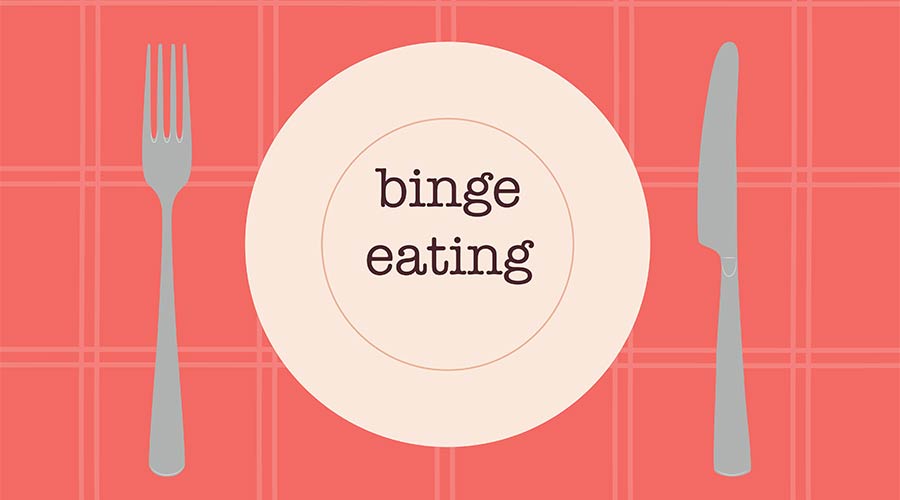UNDERSTANDING BINGE EATING DISORDER
What are the symptoms and characteristics of binge eating disorder?
Symptoms include eating a large quantity of food in a relatively short amount of time (not including holidays or other “eating events”), as well as feeling a tremendous amount of shame and embarrassment after having binged. Plus, it’s having a preoccupation with food, eating, and body image. Restricting food is also a characteristic of binge eating disorder, although people don’t often talk about it. Restriction leads to binge eating.
How is binge eating disorder different from other eating disorders such as anorexia and bulimia?
With anorexia, there are two types: restricting and binge/purge. The focus for the restricting type of anorexia is restricting calories and foods, with no binge eating or compensatory behaviors. For anorexia binge/purge type, there is a lot of restriction, as well as binge eating and purging (vomiting) to compensate for the eating. Bulimia is when people binge eat and then engage in compensatory behaviors, such as purging, using laxatives, and overexercising.
What are the potential causes or triggers of binge eating disorder?
Causes are complex. Restricting calories or food, or even certain categories of foods can lead to a glucose deficit, which can cause a binge to make up the calories. There can also be things that make you more susceptible to binge eating, such as feeling lonely, tired, helpless, hopeless, angry, and other emotions. Relationship issues and lack of boundaries can also lead to binge eating.
How common is binge eating disorder, and who is most at risk of developing it?
Over the course of one year, there is a 0.96% prevalence among females and 0.26% among males. That said, binge eating disorder tends to occur more frequently in higher weight individuals, when compared to other eating disorders. People in larger bodies aren’t typically assessed for eating disorders and don’t receive adequate care for it. So, I would guess that the actual percentages are higher.


